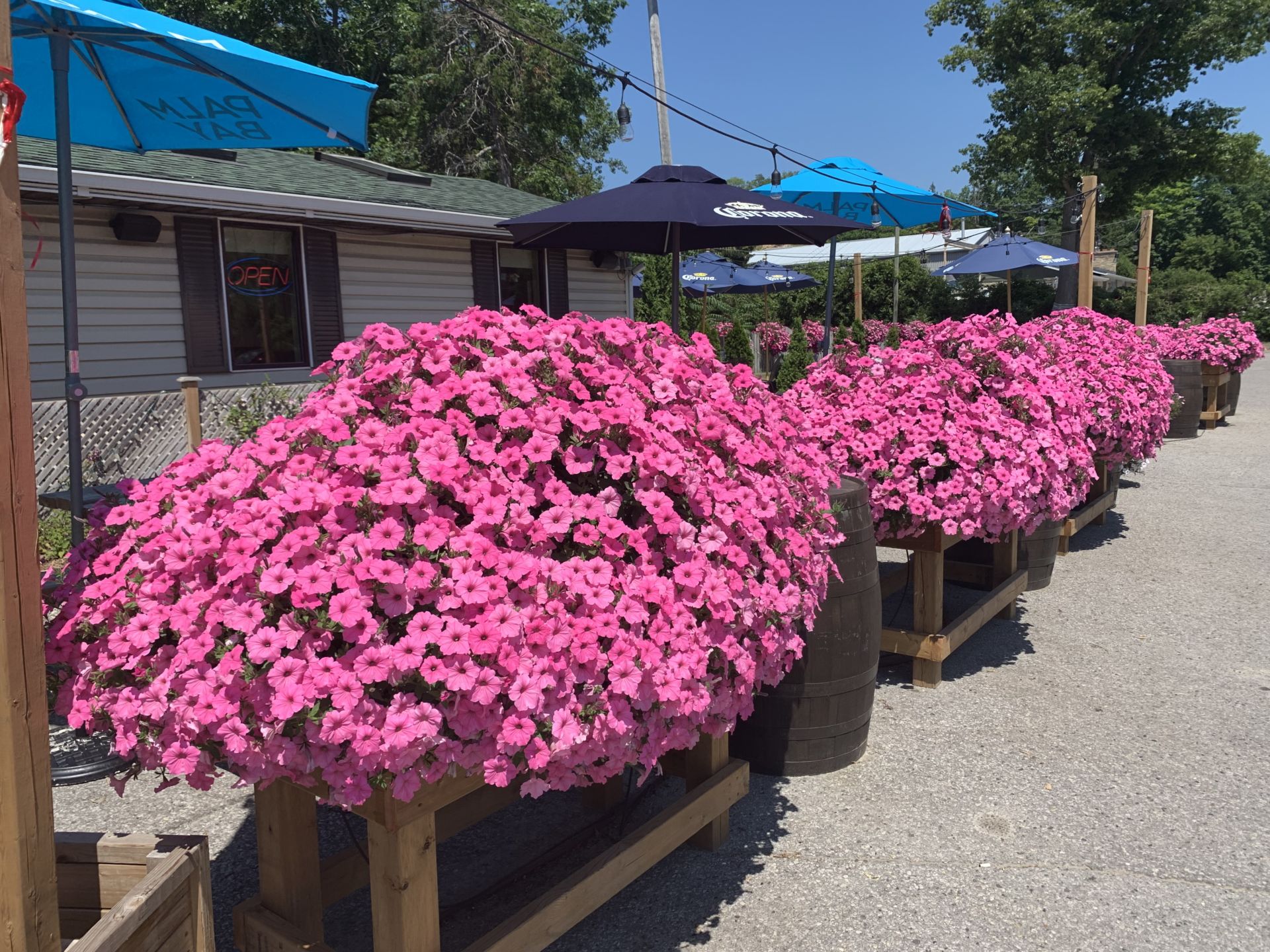Sad petunias
Garden Clippings for July 23, 2022
Everybody does it. Those Petunias in hanging baskets that we’ve received as a gift on Mother’s Day? We’ve watered them, fertilized frequently, and given them lots of sunshine. But one day, and one day only, we allowed them to dry out. The following day, we watered heavily, and the flowers look okay but lack the lush, robust display of a week earlier.
Petunias remain our number one favorite annual plant. They are a favorite Mother’s Day gift because greenhouse growers can quickly bring them into full flower after planting them as seedlings in late March.
But Petunias will punish you if you don’t give them what they need: fertilizer, daily watering, full sun, and pruning. If you miss one of these four, by mid-summer they will grow leggy with fewer, less vibrant blooms.
Petunias are heavy feeders, especially those in small hanging baskets. Feed them every two weeks with water soluble plant food. Use a formulation such as 15-30-15 that contains lots of phosphorus for powerful blooms. Supplement the liquid fertilizer with slow-release granular plant food applied twice per season.
Water faithfully. Hanging baskets hold little soil and are constantly exposed to wind and sunshine. At the beginning of spring when plants are small and weather is cool, every two days might do the trick, but by early June, they will want daily watering. Maybe more. Water so thoroughly that excess water drains out of the bottom of the plant’s saucer.
Keep Petunias in a spot where they get at least 6 hours of sun per day. If you are going away for the weekend, and don’t have someone to water for you, put the containers on the ground, in the shade for a few days only.
By mid-summer, in spite of our best efforts, Petunias might begin to lose their luster. Flowers might be sparse, and the plant becomes leggy with limbs in its centre becoming visible.
With the help of a pruner and fertilizer, Petunias can be brought back to their former glory. Start by pruning off the spent blooms. Next, shorten the longest limbs by cutting them back to about 6 inches past the roots. Your objective is to cut back at least a third of the plant.
Next, get aggressive with fertilizer. Double up on the frequency of fertilizer, without doubling up the strength. Water generously. Consider transplanting to a larger pot and adding more soil. Initially the plant will look worse for wear, but within a few short weeks your hanging basket will turn the corner.
Verbena, Million Bells, Ivy Geranium and Black-Eyed Susan behave like Petunias and will likely benefit from a mid-summer pruning and rejuvenation. Coleus, another favorite annual for containers, will also respond well to cutting back to maintain a robust, compact plant.


